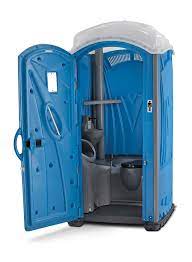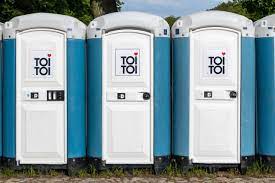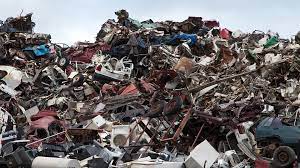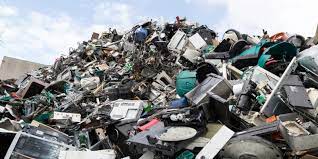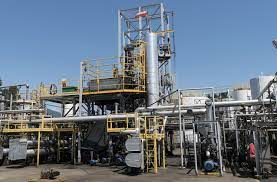
Used engine oil can be recycled into base oil and sludge. Base oil is the refined petroleum mineral or synthetic material produced by a refinery to a required set of specifications, typically lubricant base stock.
The quality of a lubricant can depend upon the type of base oil used for the refining and/or production method used to produce the base oil. It is critical toward the grade of lubricant as base oils normally make up to seventy to ninety-seven percent (70-97%) of formulation of a lubricants.
The total official lube produced in Nigeria is about one hundred and thirty-five million (135,000,000) litres, although unofficial figures put it at two hundred and seventy million (270,000,000) litres per annum. Imports to Nigeria are about sixty million (60,000,000) litres annually.
With the ever-increasing global concern for environmental sustainability, recycling has become an essential aspect of waste management. In Nigeria, a country with a growing population and industrialization, the proper disposal and recycling of used engine oil have gained significant importance.
Used engine oil is a hazardous waste that can pose severe threats to human health and the environment if not disposed of properly. Unfortunately, improper disposal methods such as dumping, burning, or illegal re-refining are still prevalent in Nigeria. This results in soil and water pollution, contamination of aquatic life, and respiratory illnesses.
Recycling used engine oil offers several significant benefits. Firstly, it helps preserve the environment by preventing contamination and reducing the demand for virgin oil extraction. Secondly, it conserves natural resources by reusing the base oil and minimizing the need for crude oil. Lastly, it promotes economic growth by creating job opportunities and contributing to the circular economy.
Despite the environmental and economic advantages, the used engine oil recycling industry in Nigeria is still in its early stages. Lack of awareness, inadequate infrastructure, and limited regulatory enforcement pose significant challenges. However, there is a growing recognition of the need for sustainable waste management, presenting a promising opportunity for entrepreneurs and investors in this sector.
Presently, a few licensed recycling plants exist in Nigeria, but their capacity is insufficient to handle the vast amount of used engine oil generated. Most of the used oil is improperly disposed of, highlighting the urgent need for more recycling facilities. Government support through legislation, incentives, and public-private partnerships can play a crucial role in encouraging investment and expanding the industry.
As the world continues to grapple with environmental concerns, the need for sustainable practices and recycling initiatives has become paramount. One such initiative is the recycling of used engine oil, which not only helps reduce pollution but also presents a lucrative business opportunity.
This article aims to provide a comprehensive guide on how to start a used engine oil recycling business in Nigeria, highlighting the steps, requirements, and potential challenges involved.
Conduct Market Research
Before venturing into any business, thorough market research is essential. Evaluate the demand for recycled engine oil in Nigeria, including potential customers such as automotive garages, industries, and power plants. Identify the competition and understand their pricing, product quality, and distribution channels. This research will help you determine the feasibility of establishing a used engine oil recycling business in your target market.
Develop a Business Plan
A well-structured business plan is crucial for attracting investors and securing funding. Outline your business objectives, target market, marketing strategies, operational processes, and financial projections. Include information about the required capital, machinery, staffing, and regulatory compliance. A strong business plan will serve as a roadmap and guide you through the various stages of setting up your recycling business.
Obtain Necessary Permits and Licenses
To operate a used engine oil recycling business legally in Nigeria, you must obtain the necessary permits and licenses. Contact the relevant government agencies such as the National Environmental Standards and Regulations Enforcement Agency (NESREA) and the Department of Petroleum Resources (DPR) to understand the specific requirements and regulations pertaining to the recycling industry. Complying with all legal obligations ensures a smooth and sustainable operation.
Secure Funding
Starting a recycling business requires a significant investment in infrastructure, machinery, and operational costs. Explore different financing options such as personal savings, bank loans, grants, and partnerships. Prepare a comprehensive financial plan to present to potential investors or lenders, highlighting the expected return on investment and the sustainability of your business model. Additionally, consider exploring government-backed schemes or incentives that support green initiatives.
Set up a Facility and Equipment
Identify a suitable location for your recycling facility, ensuring it meets environmental regulations and is easily accessible for suppliers and customers. Acquire the necessary equipment for oil collection, storage, and recycling processes. Key machinery includes centrifuges, decanters, and filters. It is essential to invest in high-quality equipment to ensure efficiency and maintain product quality standards.
Establish Supply Chains
Build partnerships and establish a robust supply chain for the collection of used engine oil. Collaborate with automotive garages, industries, and other potential suppliers to ensure a consistent flow of raw material. Develop collection points or implement a collection system that is convenient for suppliers. Implement clear guidelines for collection procedures and safety precautions.
Implement Efficient Recycling Processes
Develop a well-structured recycling process that adheres to industry standards and best practices. This typically involves stages such as oil collection, preliminary treatment, filtration, distillation, and purification. Ensure your processes are environmentally friendly and minimize waste generation. Invest in training your staff to handle the recycling process effectively and safely.
Quality Control and Testing
Maintaining high-quality standards is crucial for customer satisfaction and business reputation. Establish a laboratory for testing the quality of recycled oil, ensuring it meets the required specifications. Invest in appropriate testing equipment and hire qualified technicians to conduct regular quality checks. Implement a stringent quality control system to eliminate the risk of substandard products.
Develop a Marketing Strategy
Create a strong brand identity and marketing strategy to promote your recycled engine oil products. Highlight the environmental benefits, cost-effectiveness, and performance advantages of using recycled oil. Build relationships with potential customers, such as automotive garages, industries, and power plants. Utilize online platforms, industry exhibitions, and networking events to create awareness and attract customers.
Ensure Environmental Compliance
As an environmentally conscious business, it is vital to prioritize compliance with environmental regulations. Ensure proper disposal of waste materials generated during the recycling process. Implement measures to prevent water and air pollution. Regularly monitor your operations and conduct environmental impact assessments to identify areas for improvement and mitigate any negative effects on the environment.
Challenges and Strategies for Success
While the used engine oil recycling business in Nigeria holds immense potential, there are challenges to overcome. These include inadequate infrastructure, limited technical expertise, funding constraints, and regulatory compliance. Entrepreneurs can address these challenges by:
- Collaborating with international partners to access advanced technology and expertise.
- Seeking financial support from government agencies, NGOs, or impact investors.
- Engaging in public-private partnerships to leverage resources and scale up operations.
- Advocating for stronger regulatory frameworks and enforcement to ensure proper waste management practices.
In conclusion, starting a used engine oil recycling business in Nigeria can be a profitable and environmentally responsible venture. By following the steps outlined in this guide, aspiring entrepreneurs can establish a successful recycling operation while contributing to sustainable practices and reducing environmental pollution.
Remember, careful planning, regulatory compliance, and a focus on quality will be key to the long-term success of your business.
















